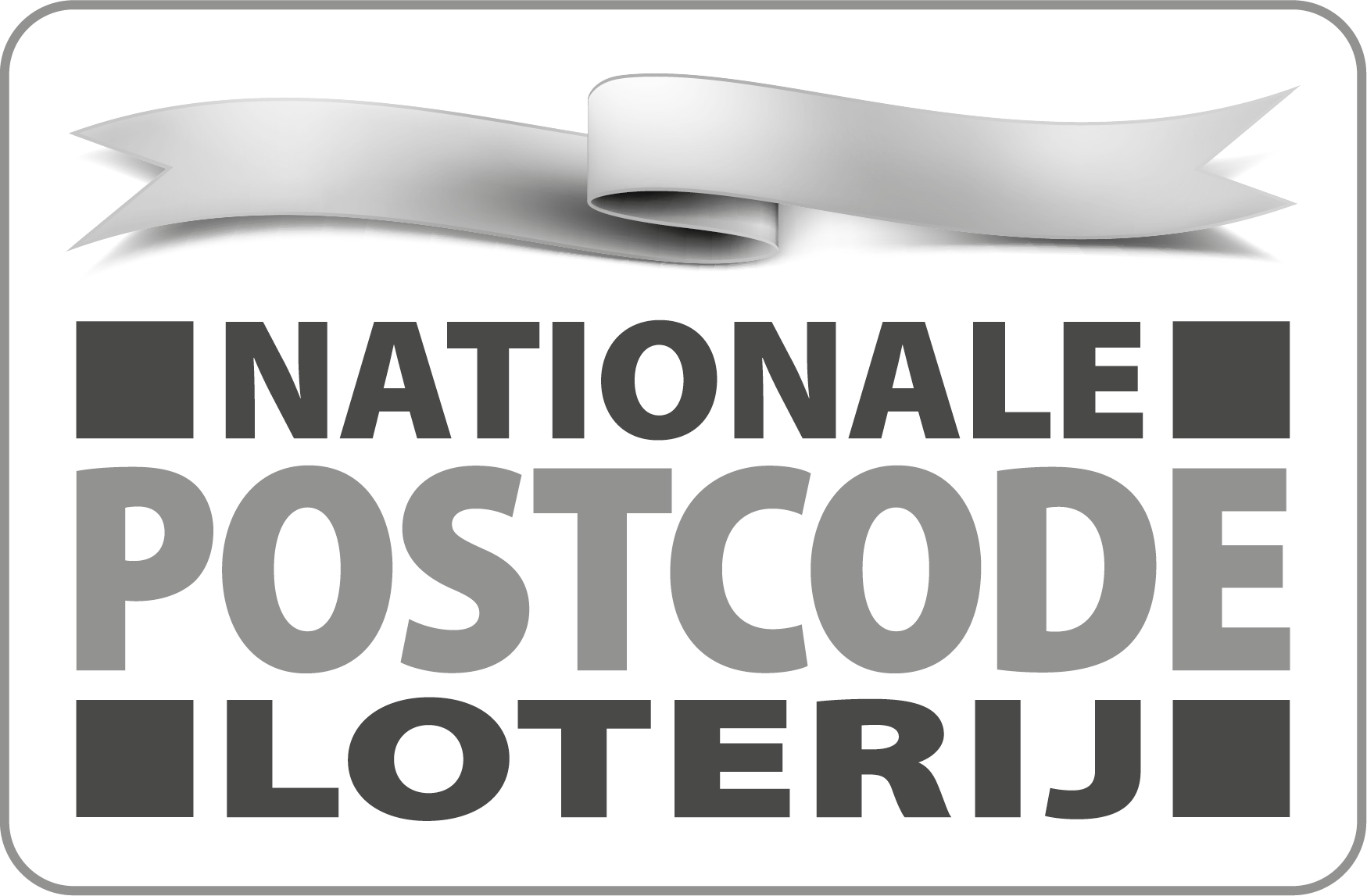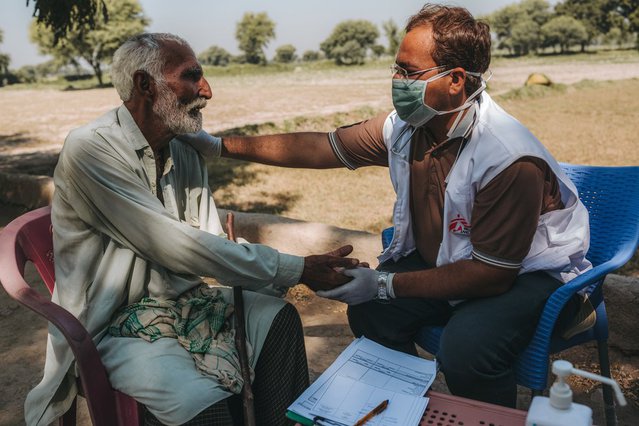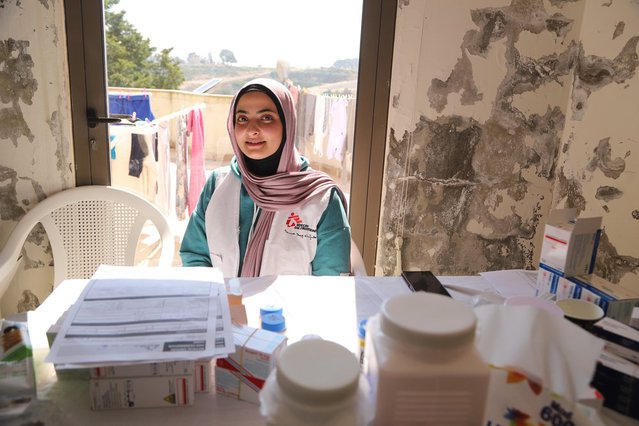What does a safe (working) environment entail?
In a safe (working) environment, everyone feels safe, welcome, respected and valued. This means that we do not tolerate unacceptable behaviour that negatively impacts the physical and/or mental health of our staff and patients. Unacceptable behaviour means:
- Abuse of power
- Exploitation (including the use of sex workers)
- Abuse of alcohol and other drugs
- Aggression and violence
- Harassment / bullying
- Sexual misconduct
- Sexual relationships with minors (under 18) and patients
- Racism and discrimination
Maintaining a safe working environment
We work hard to create an organisational culture where everyone behaves responsibly and speaks out against unacceptable behaviour. This allows us not only to prevent unwanted behaviour but also to address it.
Code of conduct
Every staff member of Doctors without Borders, whether working at headquarters or in countries where Doctors without Borders operates, signs our Code of Conduct upon employment. This document outlines:
- the standards for responsible behaviour
- what constitutes unacceptable behaviour
- the responsibilities of employees and managers
- the procedure for reporting complaints about unacceptable behaviour
Our Code of Conduct is public and can be downloaded via the link below.
> Download our Code of Conduct
Training en guidance
We organise regular trainings and workshops to ensure that all staff at Doctors without Borders understand what is expected of them in terms of respectful behaviour, how they can contribute to a safe working environment, and how to report unacceptable behaviour. For staff going on their first overseas assignment, responsible behaviour is a standard part of the training.
We ensure that employees in leadership positions are aware of their role and responsibility in creating a safe working environment. They are trained in preventing unacceptable behaviour and handling complaints or reports.
Responsible Behaviour Unit
Our Responsible Behaviour Unit focuses on preventing unacceptable behaviour and follows up on complaints and reports. They are responsible for drawing up the Code of Conduct and the content of training courses and workshops on the Code of Conduct.
Team meetings
Regular team meetings are held for employees at our offices and in the locations where we provide assistance to inform them about the behavioural expectations. The aim of these meetings is to raise awareness about responsible behaviour and to inform colleagues about the options to report unacceptable behaviour that they witnessed or experienced.
Position of power of aid workers
It is extremely important that our staff are aware that they have a certain position of power over patients and sometimes over each other. We ask them to deal with this in a responsible manner and to behave with integrity and respect. In this way, we also create a safe environment for our patients.

Culture of open dialogue
At Doctors without Borders, we encourage a culture of open dialogue where staff feel comfortable to seek advice, indicate their boundaries, give feedback, and address unacceptable behaviour. This way, we hold ourselves and each other accountable for how we interact with each another.
We also encourage patients and people in the communities where we work to report unacceptable behaviour by Doctors without Borders staff, so allegations can be properly followed up and/or investigated.
Reporting unacceptable behaviour
Anyone can report unacceptable behaviour by an Doctors without Borders staff member in projects or offices. Complaints are handled by our Responsible Behavior Unit.
Reporting channels and procedure
Employees have different channels to report unacceptable behaviour, namely:
- To their direct supervisor
- To their supervisor’s supervisor
- To one of the (external) confidantes at the office or in the country where the staff member works (if available)
- To the Responsible Behavior Unit, via email: rbu@amsterdam.msf.org or Phone/WhatsApp/Telegram: +31 (0)6 2094 1917
After reporting a complaint about unacceptable behaviour, the report is handled by our Responsible Behaviour Unit. The Unit determines if a complaint is admissible and discusses various follow-up options with the complainant. If necessary, the Responsible Behaviour Unit can initiate an investigation or recommend an external investigation. Investigators speak with relevant parties involved and any witnesses and review any other evidence. If there is clear and convincing evidence that the reported unwanted behaviour occurred, the Responsible Behaviour Unit recommends an appropriate sanction for the accused staff member. Sanctions can range from verbal to written warnings, to suspension or dismissal. Dismissal means that the person can no longer work for Doctors without Borders worldwide.
Protection of Complainants
We aim to remove any potential barrier(s) to reporting unacceptable behaviour. All reports are taken seriously, always treated confidentially and there is no statue of limitations on making a report. Complainants do not have to fear dismissal as a result of a report, and as an organisation, we do everything possible to minimize risks to the personal safety of both the Complainant and the Subject.
Support for Complainants
The safety and well-being of Complainants of unacceptable behaviour are always our top priority. We provide psychological and medical support to Complainants and, in case of potential criminal offences, we offer legal assistance.
Complicating circumstances
We acknowledge that there may be circumstances that prevent individuals from reporting unacceptable behaviour. Someone may fear stigmatization, retaliation, or not being believed. Certain contexts in which we work may exacerbate the fear of reporting, such as conflict areas where the population is heavily dependent on external aid or employment. This is a complex issue, and we strive to create an environment where both patients and staff can, and dare to, safely report unwanted behaviour
Reports in 2024
In 2024, the RBU initiated 21 investigations following a complaint:
- 1 individual received a verbal warning, 6 individuals received a written warning and 8 individuals were dismissed for violating the Code of Conduct. In 1 case, the follow-up of proven violation of the Code of Conduct was referred to management.
- In 5 cases, investigations did not find clear and convincing evidence that the behavioural rules were violated.
In addition, managers spoke to 31 employees about their performance in response to complaints. In 28 cases, the organisation held conversations with employees to remind them of the behavioural expectations in the workplace and in interactions with colleagues.






